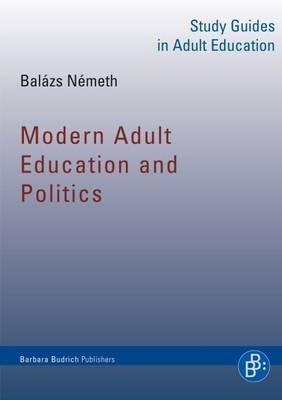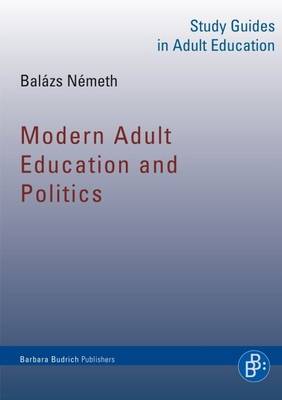
- Afhalen na 1 uur in een winkel met voorraad
- Gratis thuislevering in België vanaf € 30
- Ruim aanbod met 7 miljoen producten
- Afhalen na 1 uur in een winkel met voorraad
- Gratis thuislevering in België vanaf € 30
- Ruim aanbod met 7 miljoen producten
Zoeken
Omschrijving
This study guide describes the relation between modern adult education and politics. It explores the emergence and development of liberal democracies and the progressive role of adult education as a way of promoting successful participation in labour, social affairs, and culture. The importance of major adult education movements and their representatives of the late 19th and 20th century is pointed out. It is illustrated how they tried to shape modern politics and societies to fight back exclusion and xenophobia on the one hand, and illiteracy and low education standards on the other. The key question to be explored involves a paradox: knowledge is power. If this is true, what role, if any, does education still play in the efforts of active, critically thinking citizens to build societies characterised by democratic political participation? Or is this notion obsolete, and the role of education nowadays is primarily to serve production and consumption by helping to bring human resources in line with the needs of a globalised economy?
Specificaties
Betrokkenen
- Auteur(s):
- Uitgeverij:
Inhoud
- Aantal bladzijden:
- 120
- Taal:
- Engels
- Reeks:
Eigenschappen
- Productcode (EAN):
- 9783866494657
- Verschijningsdatum:
- 15/11/2021
- Uitvoering:
- Paperback
- Formaat:
- Trade paperback (VS)
- Afmetingen:
- 148 mm x 210 mm
- Gewicht:
- 453 g

Alleen bij Standaard Boekhandel
+ 67 punten op je klantenkaart van Standaard Boekhandel
Beoordelingen
We publiceren alleen reviews die voldoen aan de voorwaarden voor reviews. Bekijk onze voorwaarden voor reviews.








